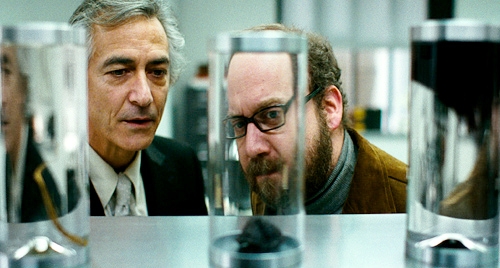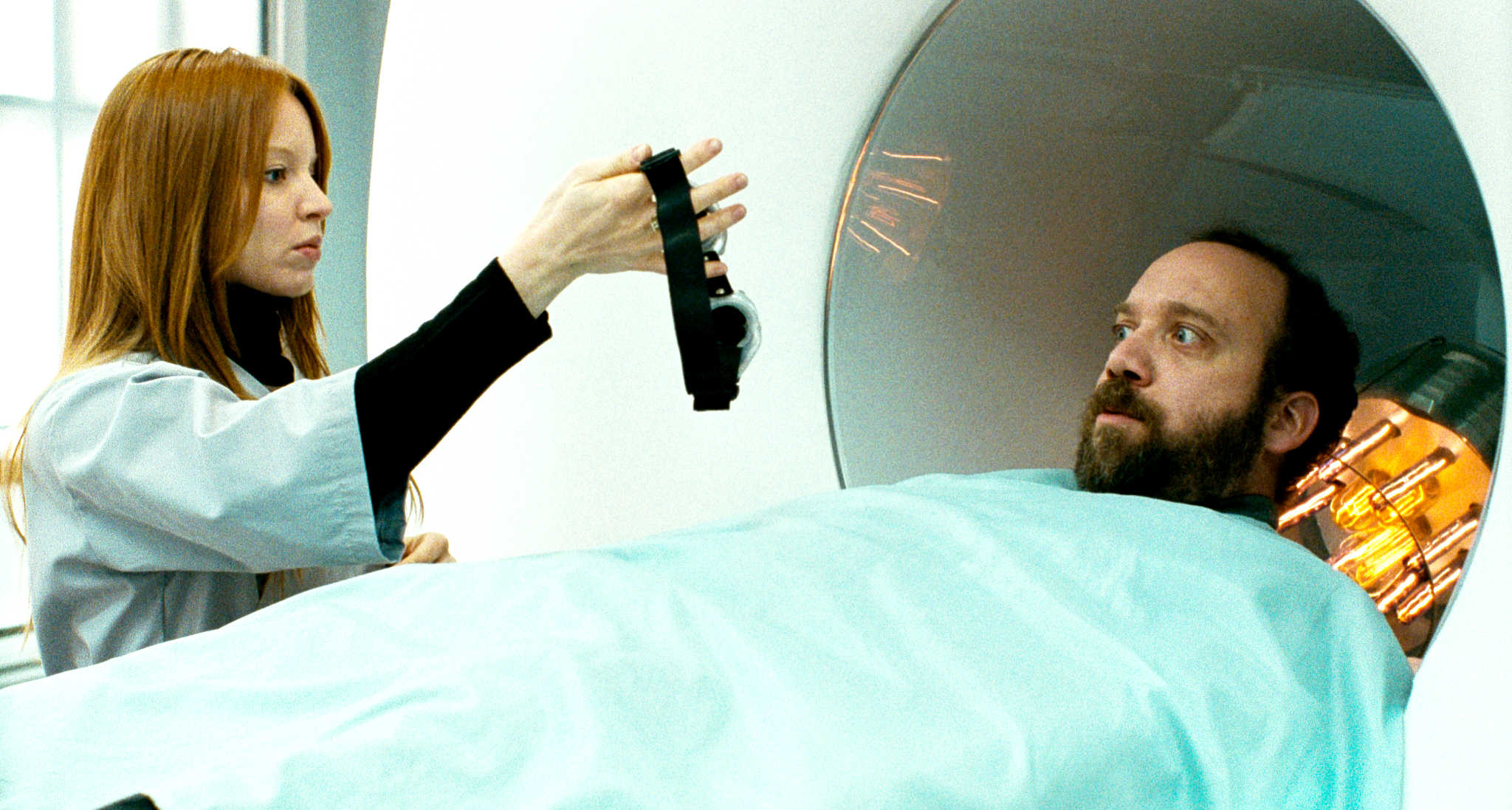
So what’s the score here? Well, world-renowned screen thespian Paul Giamatti (Paul Giamatti) has lately been pouring his heart andsoul into a Broadway production of Chekhov’s Uncle Vanya, and it’s killing him even worse than that John Adams gig back in the day — he lies awake nights, brain and stomach churning. So, after being clued into a New Yorker story about a Roosevelt Island firm that temporarily stores souls, Paul takes the plunge. Without even telling his wife (Emily Watson, bestowing her indie imprimatur), he takes a cable car over to yonder island, listens to the sales pitch from the eminently reasonable Dr. Flintstein (David Straithairn), and gets his chickpea-sized soul (or at least 95% of it) extracted from his person.
As you might expect, this has some strange side effects — The soulless Paul, for example, is completely impervious to the charms of a cute bunny (I mean that literally, although the extremely underused Lauren Ambrose doesn’t seem to have much of an effect on him either.) He’s also now a terrible actor — Without his broken soul propelling him along a dark and agonizing path, Giamatti’s Vanya flies over Russian pathos and lands somewhere in the Borscht Belt. But, when Paul heads back to Roosevelt Island to get his soul back…well, his complication has developed a little complication. For it turns out there is a brisk black market going on in the soul business, and Giamatti’s personal chickpea has been sent via mule (Dina Korzun) to St. Petersburg, where it’s being used by a beautiful Russian soap star (Katheryn Winnick) who now believes herself in possession of Al Pacino’s actorly chops. (Al Pacino has a soul?) Meanwhile, the avuncular Dr. Flintstein suggests, perhaps Giamatti could just pick a soul out of the black market catalog…word is Russian poets are going cheap these days…
There’s a lot to admire in Barthes’ Souls — It’s nothing if not clever throughout, and there are definitely a few chuckles to be had. Every member of the cast here is pretty darned good, particularly Giamatti and Watson, who manage to make a compelling, multi-dimensional marriage come across with very few lines. And I admired that the movie had thought through some of the second-level ramifications of a soul commodities business — black markets, for example.
All that being said, Cold Souls ultimately feels like something of a non-starter. As with The Brothers Bloom, a third act in Russia feels meandering and purposeless. The glimpses we do eventually get of people’s soul-landscape — a sort of Mark Romanek afterworld of out-of-focus children and creepy oldsters — are, frankly, less interesting than the ideas that were already put into play. And there’s just not much there there. In the end, the movie is better at the set-up than the follow-through. Cold Souls is worth watching on IFC some day, but, like poor Paul Giamatti after the operation, it ends up feeling curiously hollow.

